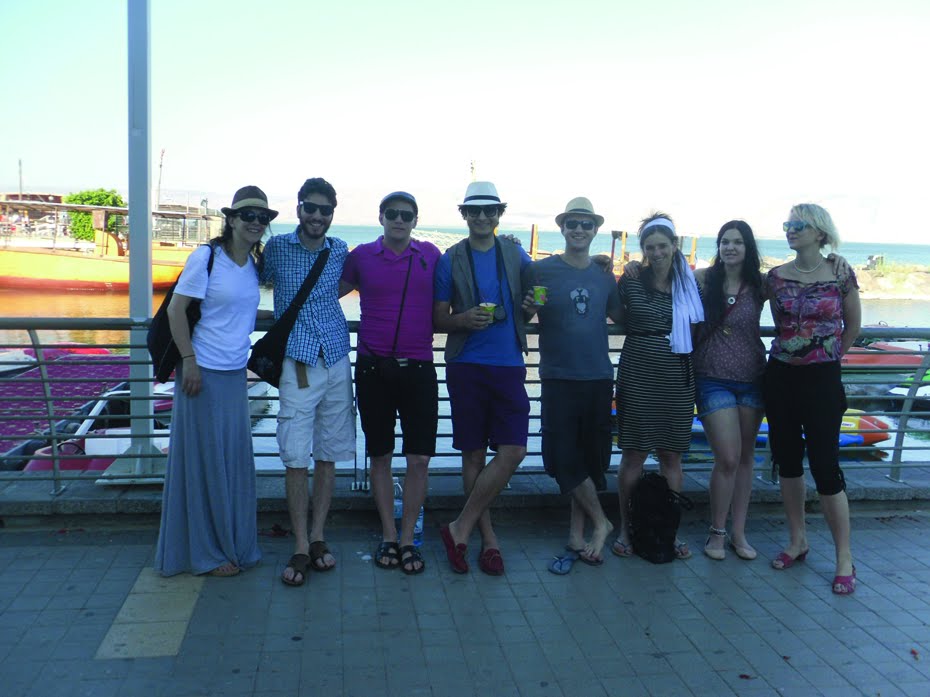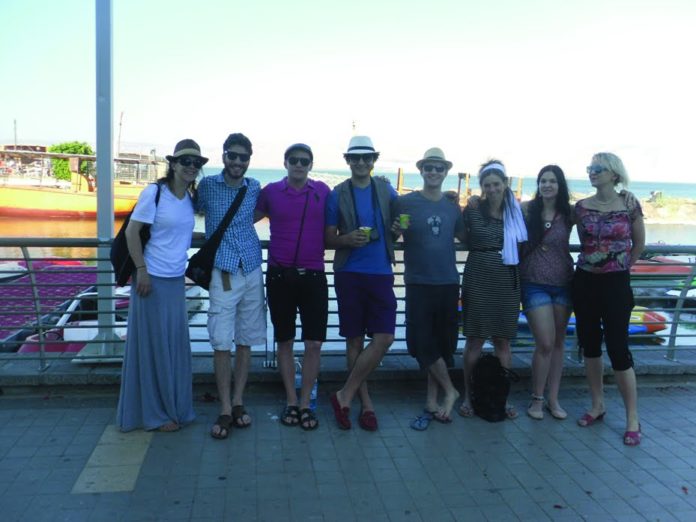 |
Only those who discover the hidden messages of Kabbalistic teachings would know how I felt to experience the 25th International Nahum Goldmann Fellowship in Israel this June; it truly is a hidden gem of the Jewish world.
For one week, Jews from across the Diaspora and Israel broke bread together on the banks of the Kinneret. They came from almost every continent as both individuals and community ambassadors; with the intention of studying, debating, arguing, engaging, socialising, listening and expressing themselves as Jews.
As with all Jewish communal events — in fact with any form of Jewish interaction — the fellowship was both fascinating and frustrating. Fascinating because for the first time I became aware of Jews I never knew existed — Indian Jews, Cuban Jews and Bukharin Jews; Jews with families more diverse than South Africa’s 11 national languages, Jews who lived under communist regimes, Jews who constantly face antisemitism, Jews who knew no more than 5 other Jews in their city and Jews who think their city is the centre of the Jewish world. I was fascinated by the way that this ancient tradition and historical lineage has moulded and manifested itself across the world in ways that charge this proud Capetonian with a surge of humility. But I was also frustrated. As the youngest fellow there, I donned the hat of ‘upstart’, raising my youth-related cynicism and concerns about a Jewish world run by an older generation. My frustration grew out of feeling somewhat uninspired by the level of academic discussion on issues relating to the future of Zionism and the relationship between the Diaspora and Israel.
I simply could not shake the highly politicised and potent divisions evident in the Cape Town Jewish community. I wanted convincing answers; I wanted these thinkers and leaders to say confidently why the South African left should not simply throw the Jewish and Zionist baby out with the Israeli bathwater. I wanted pressing reasons to open the Cape Town right to the reality of Israel today. In essence I went there wanting credible solutions to solve the mini Middle East crisis within the Cape Town Jewish community.
Finding the middle ground But I soon realised that my obsession to find that elusive middle ground was ill-fitted for such an environment. ‘Nahum’ is all about exposing divisions and giving them the credibility they seek. That is why it is precisely agenda-less. It has no solutions, only open, safe spaces to respectfully engage and constructively articulate one’s own agenda without being polarised.
It was thus after many intense conversations over unnecessary 2-hour meals that I suddenly realised the beauty of this hidden gem. There were more to these divisive labels than I first had assumed. I came to realise that the ‘right’ and the ‘left’ were just as elusive as the middle ground. I found that Nahum provided a unique forum for people to actually articulate their highly different value systems to each other in a respectful and considerate manner despite only being acquaintances for a few days and furthermore, to do so because they valued the perspectives of the other. This became that elusive middle ground for which I had been searching so desperately. Suddenly I found myself agreeing with the perspectives of a Chabad Rabbi despite being Reform; I found post- Zionists connecting to ardent Zionists; I found Orthodox rabbis espousing more liberal views than some of South Africa’s biggest humanitarians. I found myself refreshingly dumbfounded and surprised. I found answers as a result; answers to questions I had not found a way to answer, answers that I didn’t think were possible or acceptable before.
These included that there was legitimately more to Israel than a conflict over national identity; that there is more to Jewish national identity than Zionism and that there is more to Zionism than the state of Israel altogether. I found out that changes in Judaism are far more nuanced and organic than the formal Reform-Orthodox divide, that essentialising one’s Jewish identity is even more difficult as an Israeli than it is as a secular, humanist-inspired Diaspora Jew.
I found out that Jewish continuity cannot simply be solved with Aliyah, stopping assimilation or becoming post-Zionist. I found out that Judaism is never a secure, stable centre but is constantly in crisis and chaos; criticising and conditioning itself to adapt and be relevant to the individual and the collective and the context. I found out that Jews are always on the forefront of change, and that this change is Jewish continuity.
Thus I found the Nahum Goldmann Fellowship an experience of soulsearching conversations that sought not to provide textbook answers to demanding obsessions in which I am immersed back home; but rather to expose the complexities and hidden dualities of what it means to be a Jew today, devoid of labels, boxes and divisions. NGF has the rare ability to sit diversity around the same table and get them all to eat the same meal. If this is possible on a global scale then it is testament to the crucial development of the Mini Nahum Goldmann Fellowship within the Cape Town Jewish community as a hidden gem that needs to be uncovered as well.
If you are between the ages of 25 and 40 and want to find out more about the Cape Town Mini Nahum Goldmann Fellowship and the International Nahum Goldmann Fellowship, contact David Jacobson on davidj@cjtc.co.za











